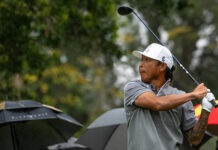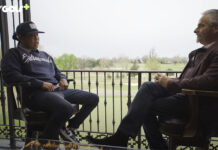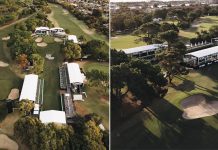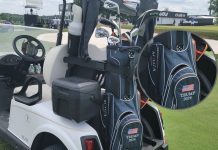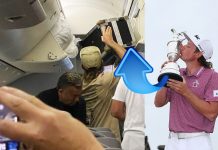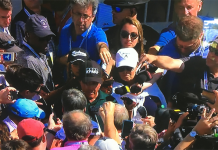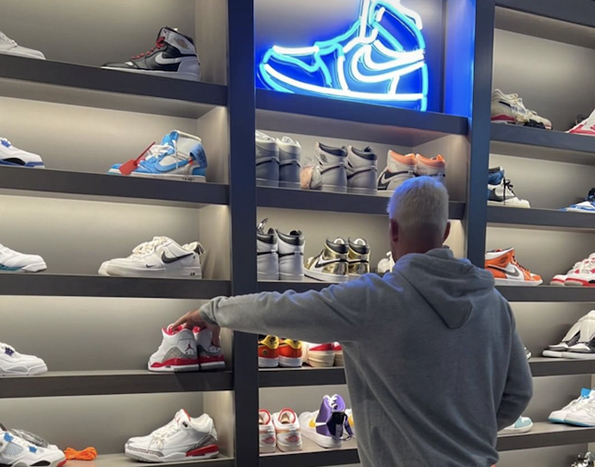
Brooks Koepka is a Nike ambassador and apparently loves his kicks so much he has a retail-like display in his home.
Sadly, according to a report in Discourse Magazine, the vast majority of the Just Do It brand’s shoes are made using a Chinese-government-run forced-labor transfer scheme:
In March 2020, a damning report from the Australian Strategic Policy Institute revealed that the Chinese government was forcing hundreds of young Uyghur women to produce Nike shoes in the Taekwang factory in Laixi City.
The South Korean-owned Taekwang factory is one of Nike’s largest suppliers, producing 8 million pairs of Nike footwear a year—including signature lines such as Air Max and Shox. It partnered with Chinese-government-run forced-labor programs that are linked to crimes against humanity.
One of these programs takes Turkic residents from rural areas in Xinjiang, the northwest region of China, and forces them to leave behind their children and other members of their families to work in factories across China. Another relocates detainees who have “graduated” from a network of concentration camps in Xinjiang.
Per study by the aforementioned Australian Strategic Policy Institute:
In January 2020, around 600 ethnic minority workers from Xinjiang were employed at Qingdao Taekwang Shoes Co. Ltd. Taekwang’s primary customer is the American multinational company Nike Incorporated.
The Xinjiang workers are mostly Uyghur women from Hotan and Kashgar prefectures (political districts), which are remote parts of southern Xinjiang that the Chinese government has described as ‘backward’ and ‘disturbed by religious extremism’.
At the factory, the Uyghur labourers make Nike shoes during the day. In the evening, they attend a night school where they study Mandarin, sing the Chinese national anthem and receive ‘vocational training’ and ‘patriotic education’. The curriculum closely mirrors that of Xinjiang’s ‘re-education camps’.
The sprawling Taekwang factory compound is located in Laixi City, to the north of Qingdao in China’s Shandong province, and is owned by the Taekwang Group, a South Korean chemical and textile conglomerate (chaebol). Taekwang’s Laixi factory is one of the largest manufacturers of shoes for Nike, producing more than seven million pairs for the American brand annually.53
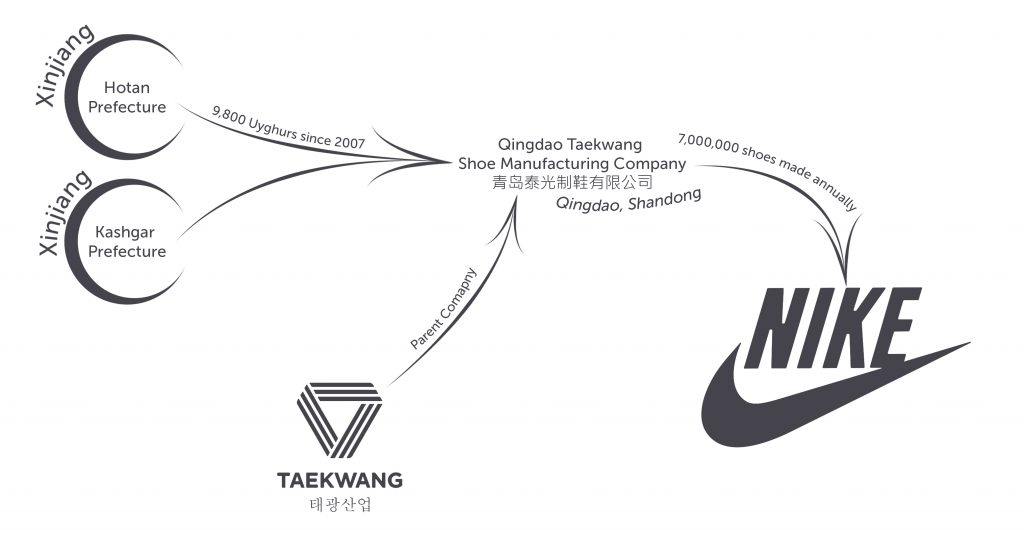
The Washington Post reported on China’s forced labor program around the same time (2020):
The workers in standard-issue blue jackets stitch and glue and press together about 8 million pairs of Nikes each year at Qingdao Taekwang Shoes Co., a Nike supplier for more than 30 years and one of the American brand’s largest factories.
They churn out pair after pair of Shox, with their springy shock absorbers in the heels, and the signature Air Max, plus seven other lines of sports shoes.
But hundreds of these workers did not choose to be here: They are ethnic Uighurs from China’s western Xinjiang region, sent here by local authorities in groups of 50 to toil far from home.
…
When their shifts end, the Uighur workers — almost all women in their 20s or younger — use hand gestures and rudimentary Mandarin to buy dried fruit, socks and sanitary pads at the stalls. Then they walk around the corner, past the factory’s police station — adorned with Uighur writing telling them to “stay loyal to the party” and “have clear-cut discipline” — to dormitories where they live under constant supervision.The Uighur workers are afraid or unable to interact with anyone in this town, north of Qingdao, beyond the most superficial of transactions at the stalls or in local stores, vendors say. But the catalyst for their arrival here is well understood.
“Everyone knows they didn’t come here of their own free will. They were brought here,” said one fruit-seller as she set up her stall. “The Uighurs had to come because they didn’t have an option. The government sent them here,” another vendor told The Washington Post.
More prison than factory, per WaPo:
Along the side, the facility resembles a prison. There are watchtowers with cameras pointed in all directions and barbed-wire fences atop the walls, which feature Communist Party propaganda posters extolling President Xi Jinping’s “China dream.” “All ethnicities are united as one family,” says one placard.
There is a special police station equipped with facial-recognition cameras and other high-tech surveillance that workers must pass through when they enter and exit the factory.
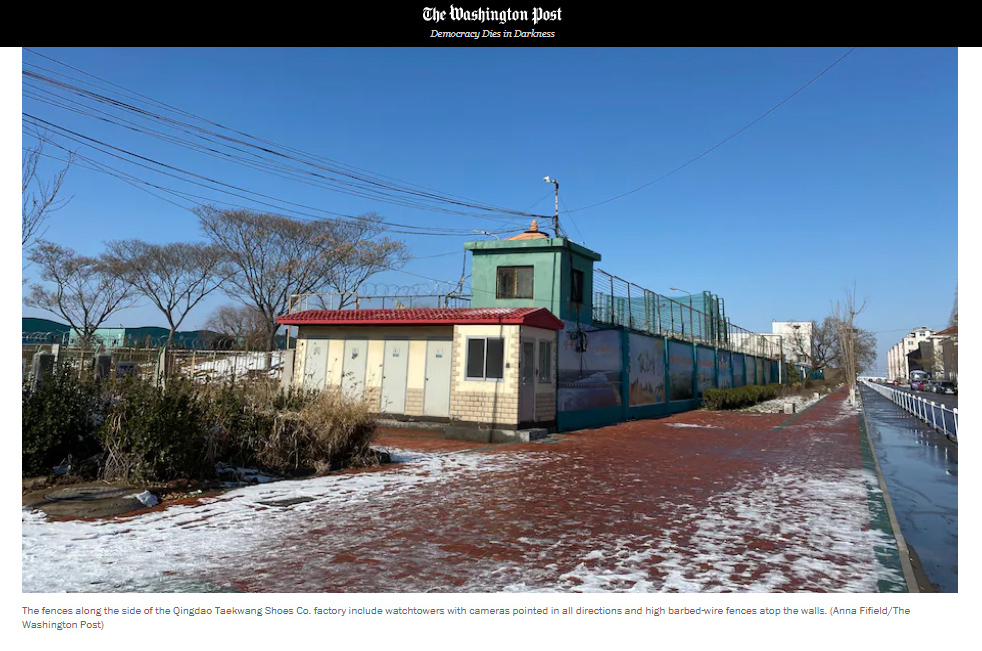
So forward-thinking!


